In pictures: Up close at Yemen's National Dialogue
- Published
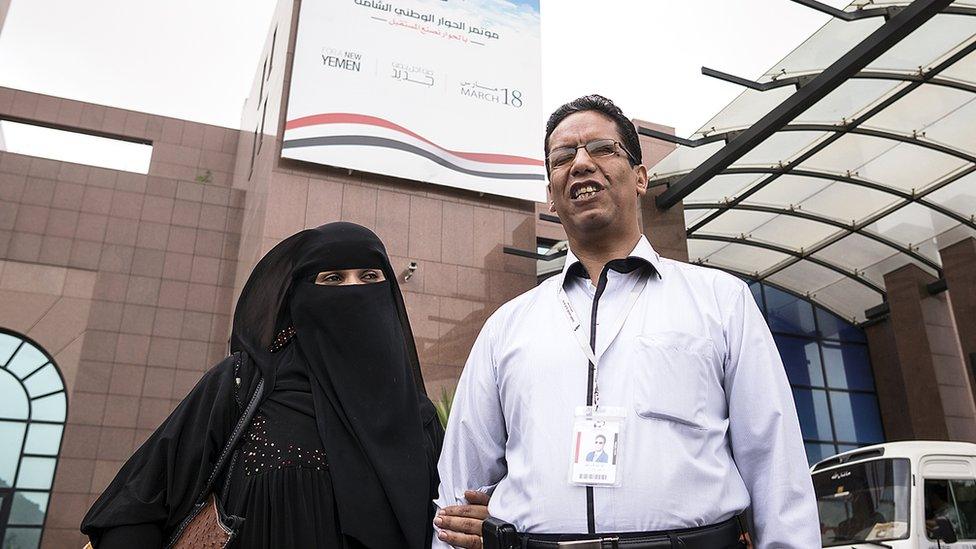
In Yemen, a UN-backed National Dialogue Conference (NDC) has brought together the bitterest of political rivals. Far from the civil war many expected, conference groups have spent months working on a comprehensive refashioning of the nation’s political and social landscapes. Ahmed Ateeq, a professor at Sanaa University, is one of the NDC’s 565 members. Ahmed is blind and assisted at every turn by his wife Masouda, whom he describes as “my life, my eyes, and my heart”.
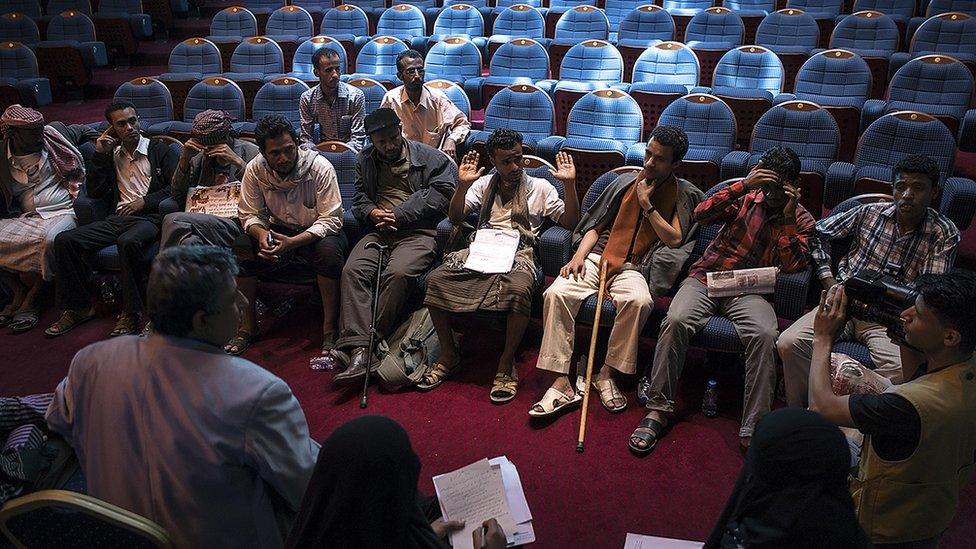
Yemen’s Youth Revolution of 2011, a popular movement which largely sought the ouster of now former president Ali Abdullah Saleh, set in motion a chain of events which led to a Gulf-sponsored political transition. The centrepiece of this transition is the NDC. The effects of violent attacks against peaceful youth demonstrations and sit-ins continue to be felt by many, including these young men who described to NDC members their frustrated attempts to receive treatment for their injuries.
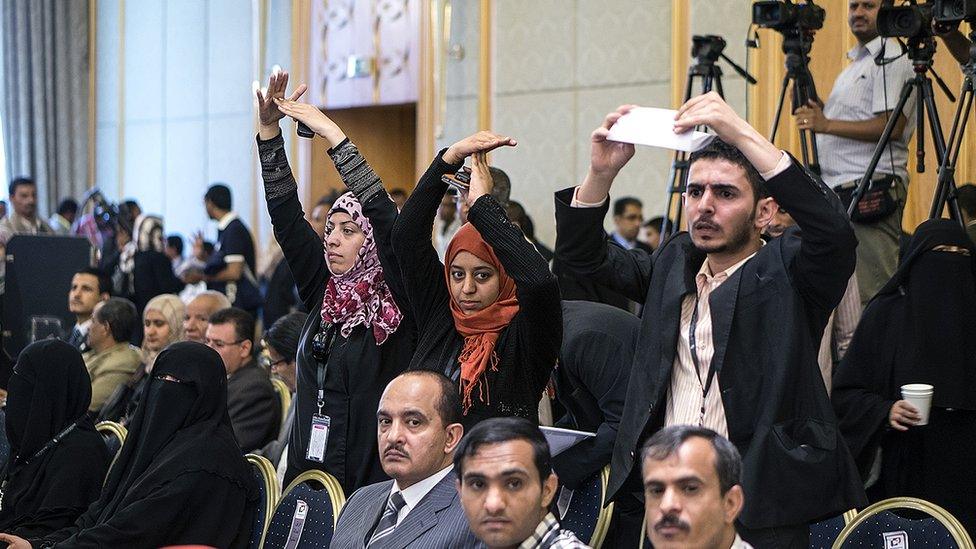
During an NDC session in June, 28-year-old "independent youth" Shatha al-Harazi (centre) tried to attract the attention of NDC presidency members. Hearing that a planned vote on recommendations was going to be postponed, Shatha and her colleagues attempted to halt the proceedings. The celebrated social media activist later explained: “We need to know what gets 90% [the percentage of group votes required for resolution approval] and what doesn't so we can deal with it.”
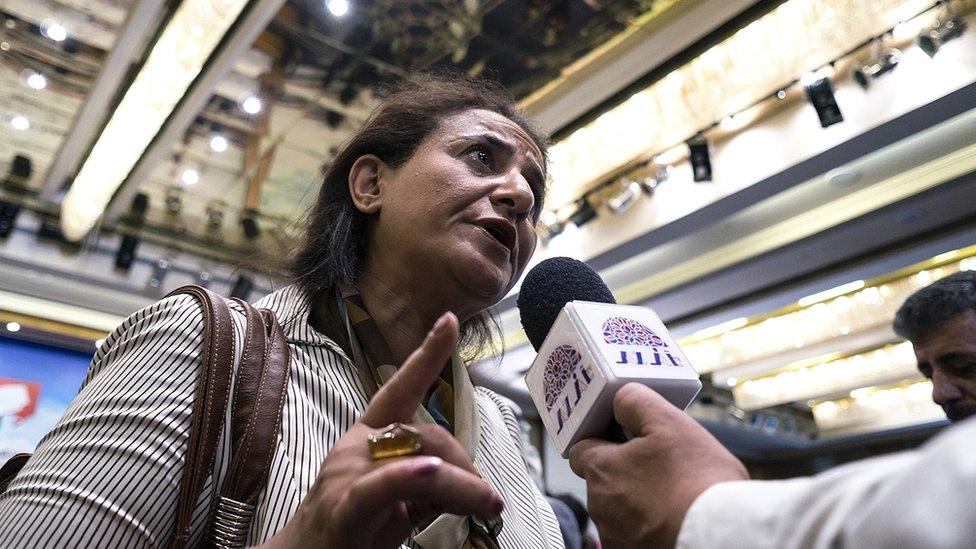
Early in the conference, an argument broke out between Amal al-Basha and tribal sheikh Sadeq al-Ahmar. The dispute was captured on video and seen by citizens throughout Yemen. Amal’s willingness to argue forcefully and without regard for social conventions with one of Yemen’s most powerful men drew expressions of support. Reflecting on how numerous people found her approach "unimaginable", Amal said: “I was thinking I was just talking to a colleague.”
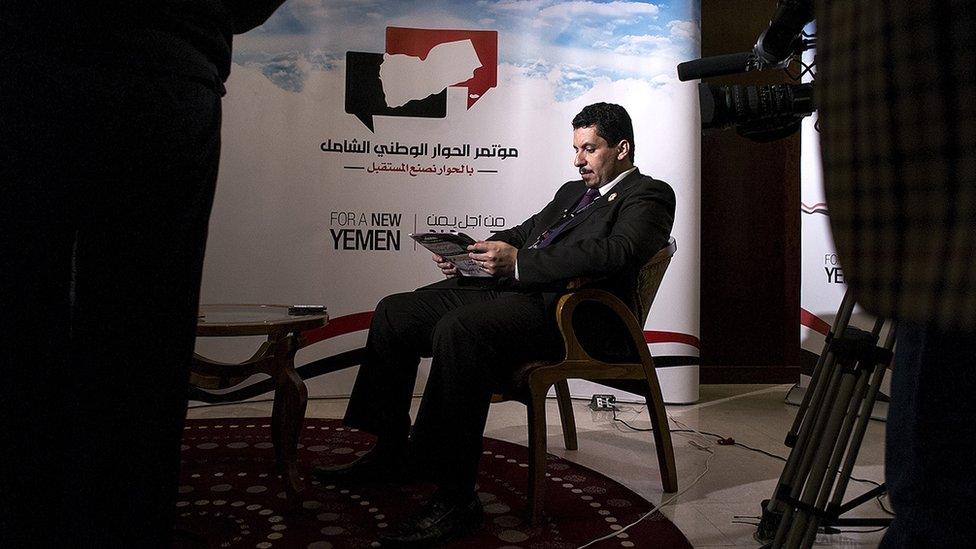
NDC Secretary General Ahmed Awad Bin Mubarak finds a few moments before a televised interview to read a newspaper. Possibly the busiest man in Yemen at present, Mr Bin Mubarak serves as the administrative head of Yemen’s historic political experiment. Later reflecting on his background as an academic, Mr Bin Mubarak said: “For the first time, I need to deal with all these different parties and different people; I have to satisfy everyone.”
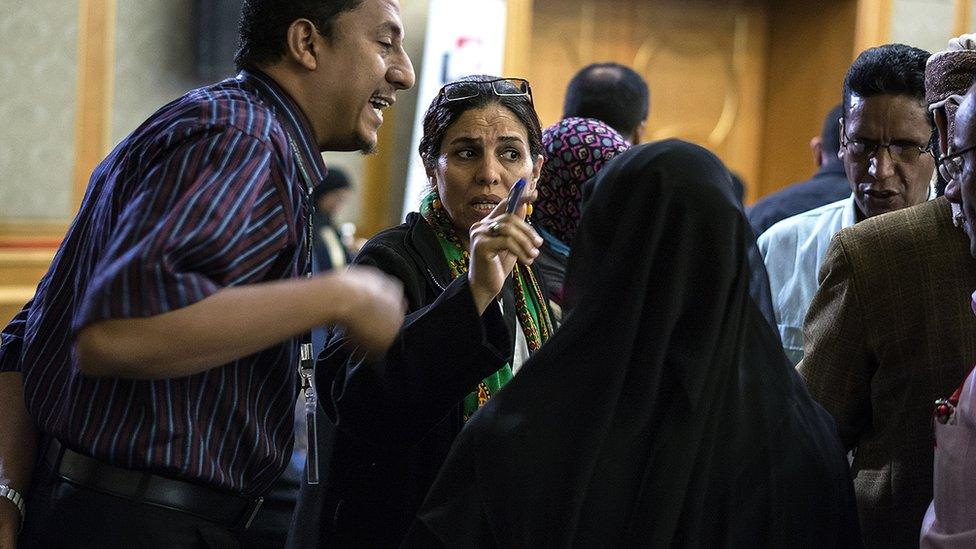
Writer and activist Arwa Abdu Othman is the chairwoman of the NDC’s Rights and Freedoms Working Group. When leading group discussions, Ms Othman puts a premium on equanimity: “In the conference, I am flexible. I never insist on my opinion.” At the same time, she speaks passionately about the power of individuality. “If we liberate individuals, we liberate the country,” adding “I shouldn’t continue to follow tribal or political elders without an awareness of my ability to act."
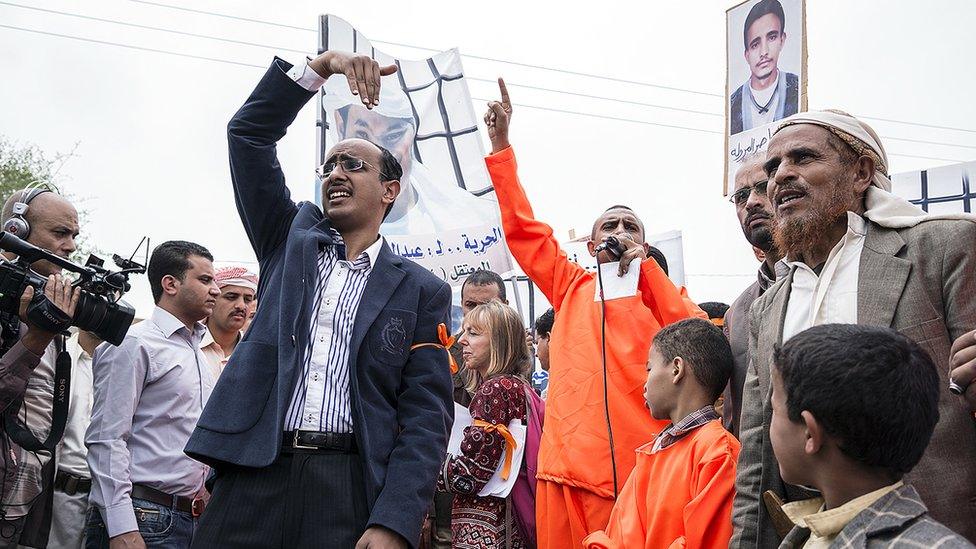
NDC member Baraa Shaiban (left) attends a rally outside the US Embassy in Sanaa alongside relatives of both Yemeni prisoners at Guantanamo Bay and citizens killed by US drone strikes. An active critic of US foreign policy toward Yemen, Mr Shaiban is among those spearheading conference efforts to draft constitutional articles prohibiting foreign violations of Yemeni airspace. Over a two-week span in late July and August, at least nine drone strikes were reported in Yemen.
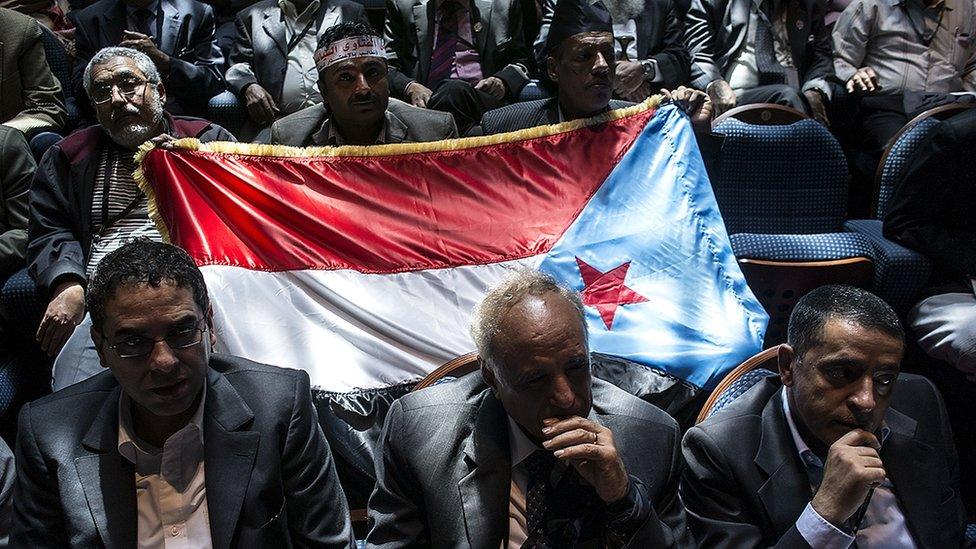
Southern NDC members hold up the flag of the former People’s Democratic Republic of Yemen, a southern Yemeni state which united with Yemen’s north in 1990. The same flag is today synonymous with Southern Movement activist groups seeking social and political parity with - or outright secession from - the north. A recent absence of many Southern Movement members from the NDC was problematic, as their presence was required for votes on working group reports and resolutions.
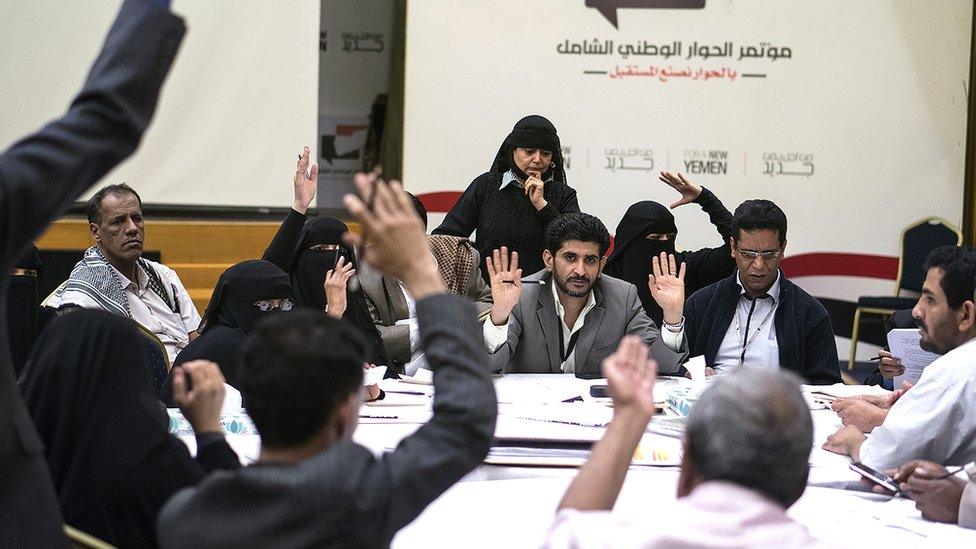
Yemen has often been perceived to be a follower of nearby Egypt’s political lead. Yet as calls increase for an inclusive national dialogue to be held in Egypt – and while other Arab Spring nations descend into turmoil - Yemen’s own seemingly irreconcilable factions have been meeting for months. In a grand hotel in Sanaa, representatives of a people with strong oral traditions are engaged in dialogue, the centrepiece of efforts to forge a new beginning in their country’s modern history. [Pictures and text by Luke Somers]